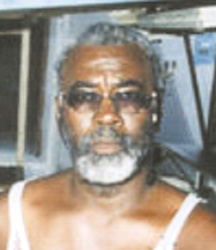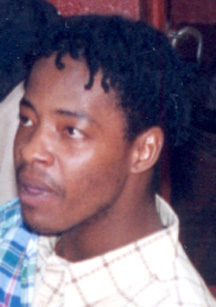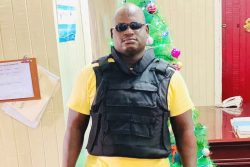Dwight Da Silva, the man accused of killing Kaneville businessman Barbot Paul, was yesterday found not guilty.
Justice Roxane George in the High Court upheld a no-case submission made by Da Silva’s lawyer, George Thomas. Da Silva did not leave the court a free man, however, since he has another pending matter before the court. Justice George told Da Silva that he was extremely fortunate, since there was a big gap in the investigations conducted by the police and the prosecution was not at fault for the investigators’ poor work.
Paul, an outspoken fighter against crime, was shot dead at Kaneville by a gunman who wanted his firearm in 2006. His was one of a series of shocking murders during a bloody crime spree.

The prosecution, led by Konyo Sandiford and Renitha Singh, yesterday presented its last witness, policeman Eon Jackson, before closing its case. Jackson was then cross-examined by Thomas, who subsequently made a no-case submission.
His submission was based on the testimony given by Paul’s granddaughter Nazeema Persaud earlier in the trial.
Persaud, according to Thomas, did not previously mention to the police at any time that she knew Da Silva from seeing him in Agricola when she visited her mother and she did not give police a description of him. He explained that Persaud had signed her statement after she had read what was recorded, although it omitted knowledge of seeing the accused previously. As a result, he told the court that the credibility and reliability of Persaud’s testimony should be deemed worthless.
After Thomas’ submission, the prosecution asked the court to determine if a prima facie case existed, while seeking to have Persaud’s evidence be deemed credible and reliable.

When the case continued in the afternoon session, Justice George told the court that there was no other evidence implicating the accused other than that of Persaud. But she noted that the description given by Persaud of the two men as tall and dark and short and brown was vague. She upheld the no-case submission, stating that Persaud’s evidence was not reliable enough for the case to be given to the jury, which was directed to return a not-guilty verdict.
The freeing of the accused in this case is the latest in a long line which has called into question the ability of the police to properly investigate murders of this type. A large amount of murders have also gone unsolved.










